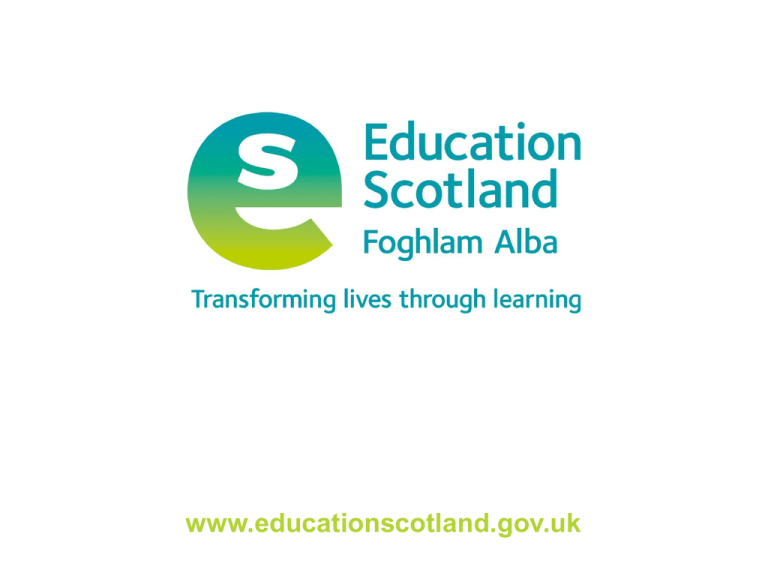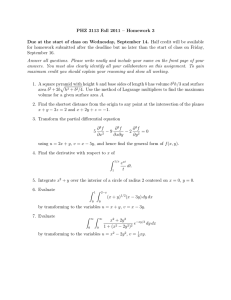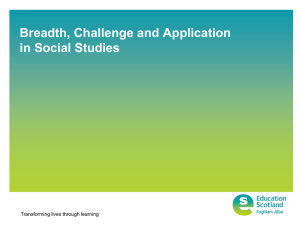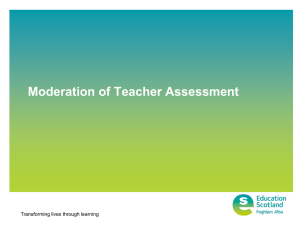www.educationscotland.gov.uk
advertisement

www.educationscotland.gov.uk Assessment – Key Messages 1. Is integral to learning and teaching - involves all stakeholders, most importantly the learner - is ongoing, periodic, at times of transition 2. Builds capacity in practitioners to make professional judgements underpinned by professional dialogue - assessment requires a variety of approaches generating a body of quality evidence - assessment and moderation are integral to each other 3. Is holistic and informative - has many purposes, the most important of which is to support the learner journey - goes beyond KU alone to include skills, attributes and capabilities Transforming lives through learning Is Integral to Learning and Teaching • Assessment is part of learning and is on-going in the classroom. • Learners understand their learning and are involved in dialogue about it. • At times, more formal or structured assessment is used to test understanding, skill development or attributes. • The profiling process and the production of a profile are integral to a learner understanding their own learning. Transforming lives through learning Build Professional Judgement • Moderation by practitioners is fundamental to ensuring a rigorous, robust and credible assessment system. • Moderation supports practitioners in reaching a shared understanding of – planning learning and teaching assessment (on-going approaches e.g. learning logs and/or more structured or formal evidence). Transforming lives through learning Build Professional Judgement (cont.) • Time needs to be allocated to moderation to allow practitioners to develop their skills/competence in the process. • Moderation helps staff to develop their understanding of the quality of children’s work so that they can transfer this to areas not being moderated. • Moderation is robust in assessing learning and the range of learning. Transforming lives through learning Holistic and Informative • Holistic assessment captures not just knowledge and understanding but also the skills, capabilities and attributes of learners. • To allow holistic judgements to be made, there should be opportunities for assessment across the four contexts of learning. • Assessment should include children’s ability to work in, and with, higher order thinking skills • Holistic assessment informs future learning and can be used by learners to inform profiling and by practitioners to inform reporting. All of this applies from age 3-18. Transforming lives through learning How do I Report Progress? Involve parents so that any changes being made are understood and supported . Ensure the changes are in line with BtC5. Transforming lives through learning How do I Report Progress? Not just once a year • • • • • School show School newsletter Open day Parents’ evenings Children skilled up to discuss progress with parents – profiling process • On-going communications e.g. learning logs, diary Brief summary report at the end of the year – main achievements and a limited number of next steps. Transforming lives through learning What do I Say at Parents’ Night? • The learner’s achievements. • A limited number of next steps. • How parents can support the learning. Many schools are using the children to lead such conversations – after all, it is about their learning. Transforming lives through learning www.educationscotland.gov.uk Transforming lives through learning



